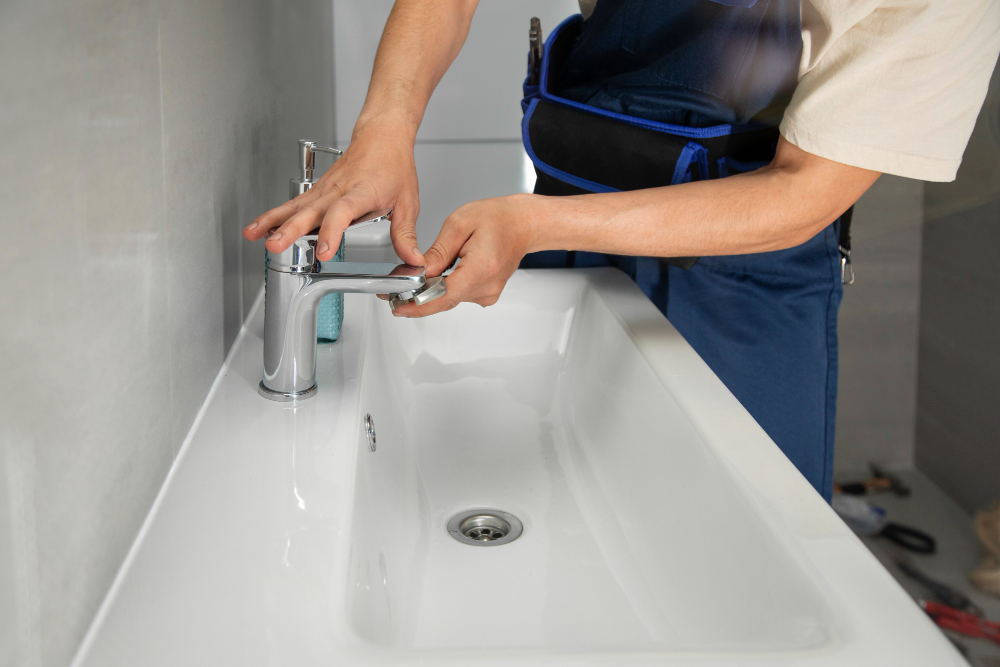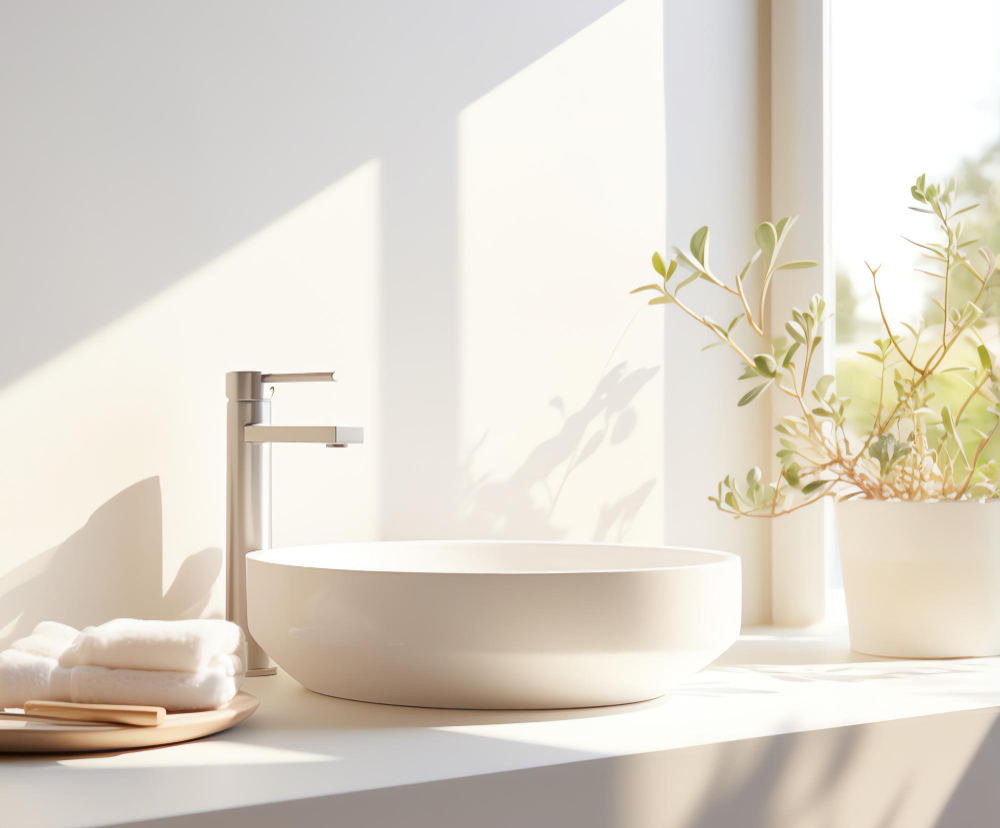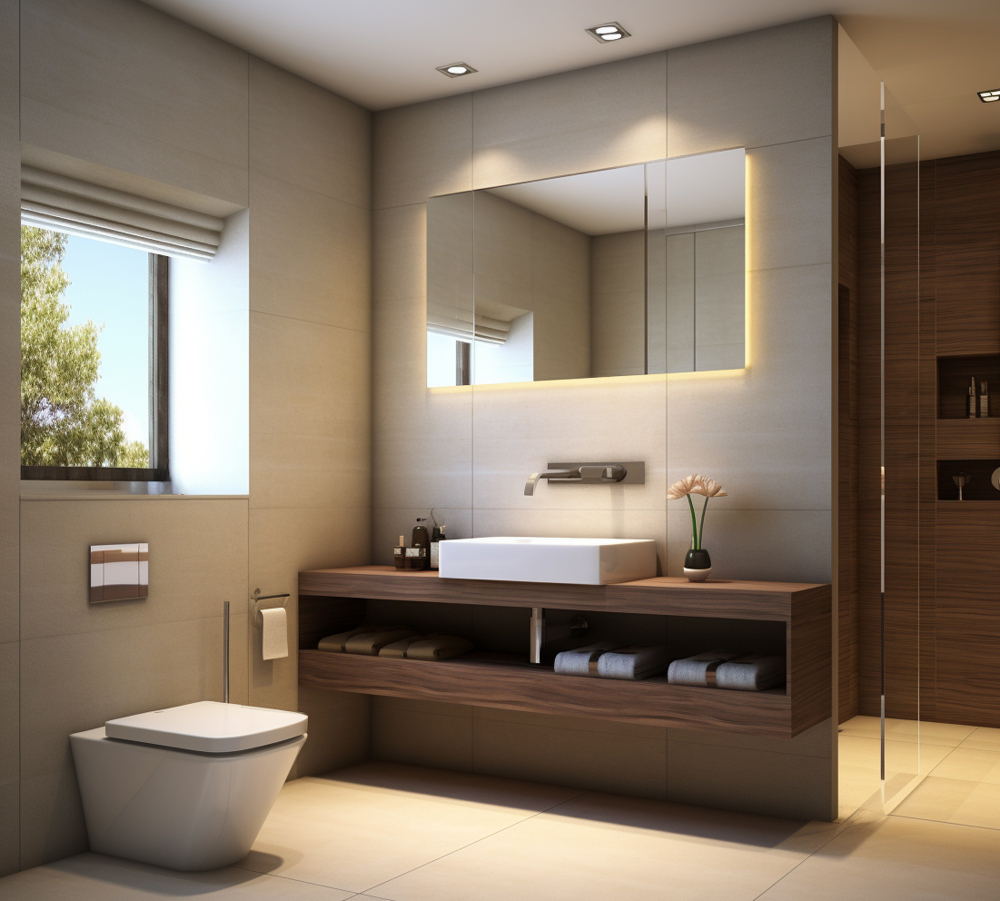
Table of Contents
Toggle5 Types of Shower Faucets and Their Pros and Cons
#1. Single-Handle Shower Faucet
This type of shower faucet contains a single knob or handle to control both the water and temperature.
Pros
Single-handle shower faucets offer convenience and simplicity, allowing you to adjust the water with one hand.
This type of faucet is also easier to clean and maintain.
Additionally, single-handle shower faucets are easier to operate for people with disabilities, arthritis, or a limited range of motion.
Cons
The primary disadvantage of single-handle shower faucets is that you’ll need to turn off both valves when they start to leak.
This is a hassle since there won’t be any running water until somebody fixes the issue.
Not only that, some homeowners also have trouble adjusting the desired water temperature using single-handle shower faucets.
#2. Two-Handle Shower Faucet
Dual-handle shower faucets have separate knobs for water temperature control and flow rate.
Pros
Double-handle shower faucets look stylish and timeless for your bathroom.
This type of shower faucet also offers better water temperature and flow control; it’s almost impossible to confuse which knob is for hot and cold water.
Cons
Two-handle shower faucets usually come in parts that require more time to install, clean, and maintain.
#3. Thermostatic Shower Faucet
Thermostatic shower faucets come with a built-in thermostat that controls water temperature.
Pros
This type of shower faucet works regardless of water supply fluctuations.
Plus, thermostatic shower faucets are especially beneficial for families with young children or people who need temperature-regulated baths.
Not only that, but this type of shower faucet is energy-saving, too.
Cons
The main disadvantage of thermostatic shower faucets is their cost, which is usually twice as much as other types.
#4. Pressure-Balancing Shower Faucet
This type of shower faucet automatically adjusts the pressure of hot and cold water.
Pros
Pressure-balancing shower faucet ensures a steady water temperature and prevents changes of more than 3 degrees Fahrenheit.
Thus, protecting you from getting burns or freeze shocks when you turn on the shower.
Cons
The primary disadvantage when you’re using a pressure-balancing shower faucet is that you can’t control temperature and volume at the same time.
Another thing, scale and debris in the water (e.g. rust) can force the pressure valve to stick together, which results in a complete loss of pressure compensation.
#5. Digital Shower Faucet
Digital shower faucets allow you to electronically control or set the water temperature and flow rate when taking a bath.
Pros
Some digital shower faucet models offer additional features for customization like the following:
- Programmable presets
- Touchscreen displays
- Wireless connectivity
Cons
The biggest disadvantage of digital shower faucets is their cost and dependability on electricity to function.
4 Styles of Shower Faucets and Their Pros and Cons
#1. Wall-Mounted Shower Faucet
The wall-mounted shower faucet is the most common style available for bathrooms.
As the term implies, this type of shower faucet is mounted on the wall.
Pros
Wall-mounted shower faucets can be conveniently paired with a few showerhead types, including the following:
- Hand showers
- Fixed showerheads
- Or a combination of both
Cons
The disadvantage of wall-mounted shower faucets is the amount of time and money it can take to install them.
Plus, not all bathroom walls are compatible with this type of shower faucet unless the construction is pre-determined.
#2. Ceiling-Mounted Shower Faucet
As the name implies, this faucet style is installed on the ceiling and is commonly used in rain shower systems.
Pros
Ceiling-mounted shower faucets usually have different variations and features like different water settings.
Plus, this faucet style is more convenient since there’s no need to twist, turn, or stoop when using it.
Cons
Some drawbacks of ceiling-mounted shower faucet are the following:
- Requires a high ceiling
- Water pressure isn’t as high as others
- Maintenance can be tricky and complicated
#3. Stand-alone Shower Faucet
Stand-alone shower faucets are often used in detached or separate tubs in the bathroom.
Pros
Freestanding or stand-alone shower faucets are perfect for longer bath times and privacy.
Plus, this faucet style is energy and water-efficient.
Not only that, but stand-alone shower faucets also work great in tight spaces.
Cons
Meanwhile, stand-alone shower faucets also have a few disadvantages, too, which are the following:
- More expensive than other faucet styles
- Needs enough floor strength because of the faucet’s weight
- Storage for bath essentials may be needed since tubs don’t come with shelves or trays
#4. Tub and Shower Combination Faucet
As the name implies, this style is a combo of a shower faucet and a bathtub faucet.
This bathroom fixture allows you to conveniently switch between the two functions and is better for spaces with a bathtub-shower combo.
Pros
Tub-and-shower faucet combos work really great if you’re trying to save bathroom space.
This style is also ideal if you have kids at home because it keeps them in one place.
Cons
The biggest drawback of tub-and-shower faucet combo is their need for high maintenance.
Where to Find the Best Shower Faucet Manufacturer
If you’re a business owner looking for the best shower faucet manufacturer in the market, then POPKB Inc. can provide you with what you need.
With 30 years of industry expertise, POPKB Inc. has partnered with businesses in China and the US.
What’s good with the company?
They offer low MOQ, cheaper bulk prices, and quick delivery for small orders.
Contact them now to get started.


